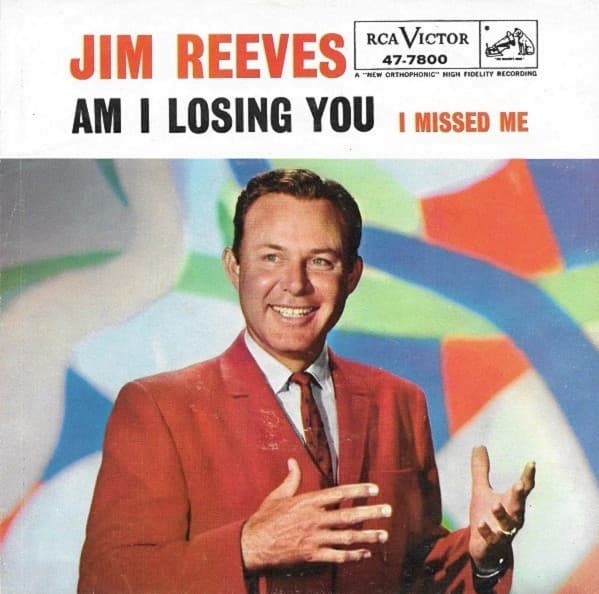
Jim Reeves’ “Am I Losing You” – A Heartfelt Reflection of Love and Doubt
In the pantheon of country music, few voices have resonated as deeply as that of Jim Reeves. His 1957 classic, “Am I Losing You,” stands as a testament to his ability to convey profound emotion through simplicity. This song, with its tender melody and poignant lyrics, speaks directly to the universal fear of love slipping away. It’s a piece that, despite the passing of decades, continues to touch the hearts of listeners, particularly those who have walked the path of love and loss.
When Jim Reeves first released “Am I Losing You,” it quickly struck a chord with the country music audience, spending two weeks at number three on the country singles chart. This initial success was no fluke; the song’s blend of vulnerability and melodic beauty made it a standout even in the golden era of country music. Reeves, known for his smooth “Nashville sound,” managed to capture a moment of intimate uncertainty that many could relate to, yet few could articulate so well.
The song’s impact didn’t end with its 1957 release. In 1960, Reeves revisited “Am I Losing You” with a re-recording that brought a new dimension to the song. This version not only climbed to number eight on the country chart but also made an impressive crossover to the Billboard Hot 100, peaking at number 31. Remarkably, this re-recording served as the B-side to another hit, “I Missed Me,” which also secured the number three spot on the country chart. The pairing of these two songs in a single release highlighted Reeves’ unique ability to explore the complex emotions surrounding love and separation, themes that resonated with a broad audience.
“Am I Losing You” is more than just a song; it’s an exploration of doubt and the fragility of relationships. The lyrics, straightforward yet deeply reflective, pose a question that many have asked themselves in moments of uncertainty. Reeves’ delivery, with his warm and reassuring baritone, gives the song an added layer of sincerity. It’s as if he’s confiding in the listener, sharing his fears and hopes in equal measure.
For those who grew up during the 1950s and 1960s, “Am I Losing You” may evoke memories of slow dances and quiet evenings spent by the radio, but its appeal is not limited to nostalgia. The song’s timeless quality lies in its honest portrayal of human emotions. Whether you’re hearing it for the first time or the hundredth, Reeves’ voice has a way of making you pause and reflect on your own experiences with love—both the joy and the sorrow.
In revisiting “Am I Losing You,” one is reminded of the enduring power of country music to tell stories that resonate across generations. Jim Reeves may have left us too soon, but his music, particularly songs like this, ensures that his legacy will continue to live on. It’s a song that invites you to feel, to remember, and to understand that some questions, like the one posed in the title, are as old as love itself.